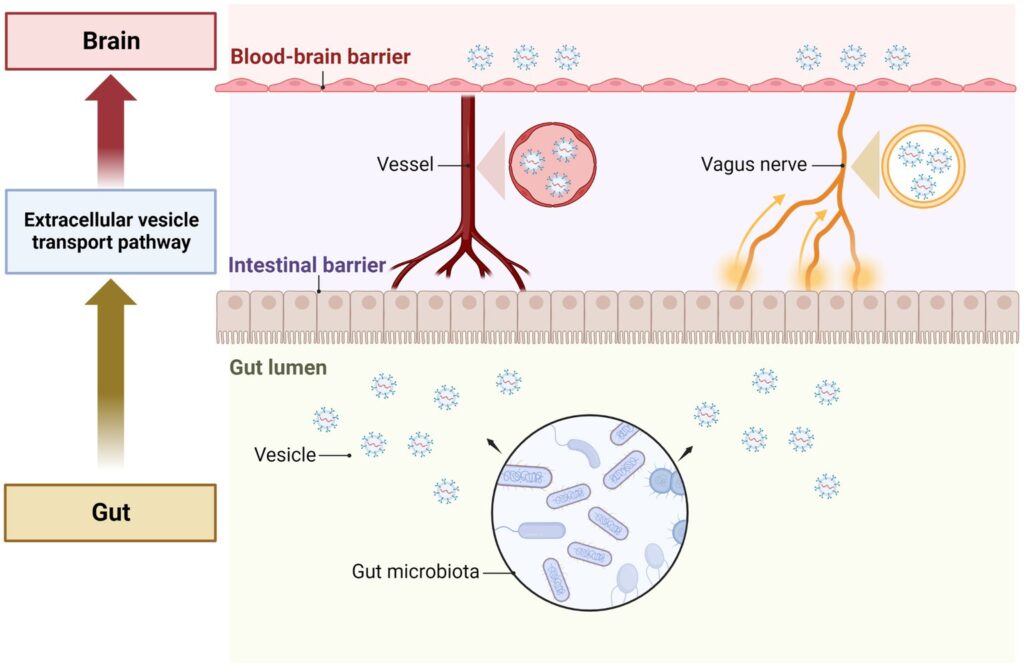Emerging therapeutic role of gut microbial extracellular vesicles in neurological disorders

The role of GMEVs in mediating gut-brain communication.
The study “Emerging Therapeutic Role of Gut Microbial Extracellular Vesicles in Neurological Disorders” by Bowen Sun et al. explores the potential of gut microbiota-derived extracellular vesicles (EVs) in neurological health and disease.
Key Highlights:
- Role of EVs in the Gut-Brain Axis
- Gut microbial EVs facilitate bidirectional communication between the gut and brain.
- They cross the blood-brain barrier (BBB) and regulate neuronal, astrocyte, and microglial function through their protein and nucleic acid cargo.
2. Therapeutic Potential of Gut Microbial EVs
- Certain gut bacterial EVs, particularly those from probiotic species, show neuroprotective effects.
- They modulate brain inflammation, oxidative stress, and neurodegeneration.
3. EVs in Neurological Disorders
- Preclinical and clinical evidence suggests their involvement in stroke, Alzheimer’s disease, Parkinson’s disease, and dementia.
- Some bacterial EVs may contribute to disease progression, while others could serve as therapeutic agents.
4. Future Perspectives
- Genetic engineering and dietary interventions are being explored to enhance the therapeutic efficacy of gut microbial EVs.
- The study emphasizes the need for clinical translation to harness microbial EVs for treating neurological disorders.
Conclusion:
This review underscores the dual role of gut bacterial EVs—as both contributors to and potential therapies for neurodegenerative diseases. It highlights cutting-edge approaches to harnessing these EVs for precision medicine in neurological disorders.
Image Credits: Sun et al. Front. Neurosci. (2023)